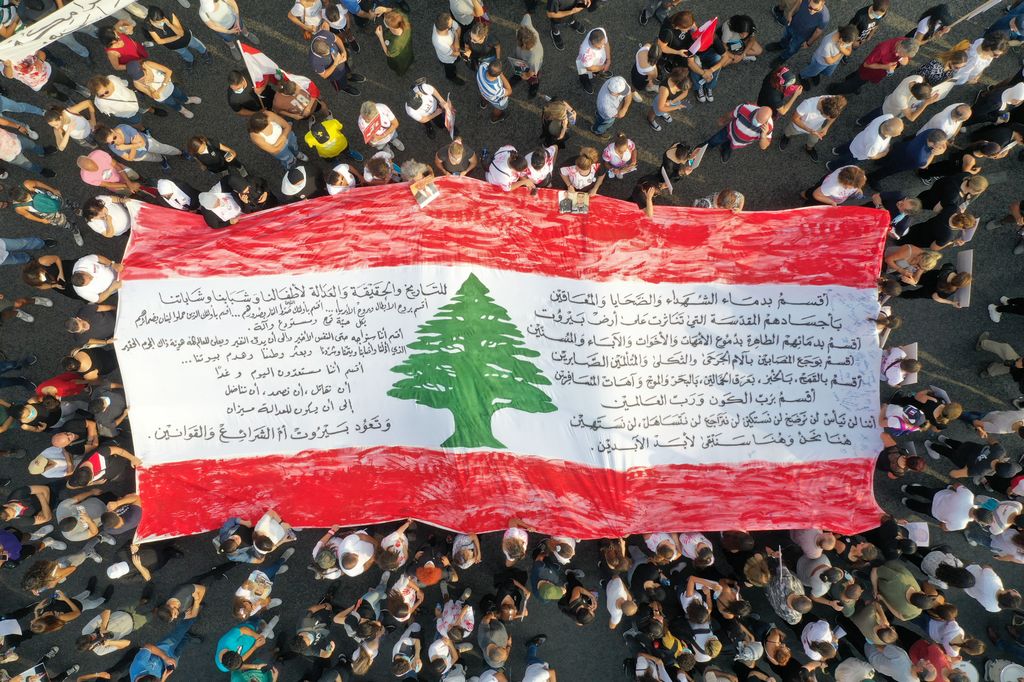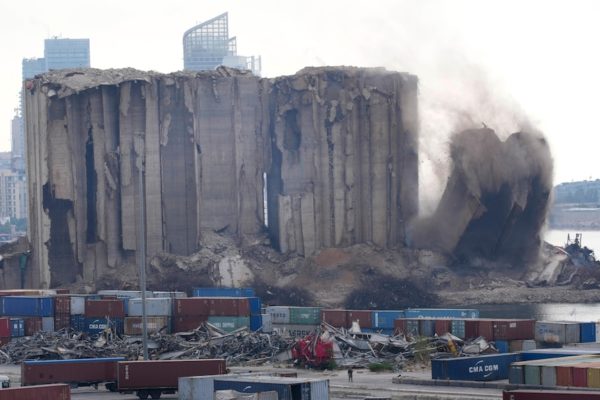Former French Foreign Minister Jean-Yves Le Drian says, “Lebanon is the Titanic without the orchestra.” Not so fast.
BY FADI CHEHADÉ
Two years ago, an explosion 40 times bigger than Chernobyl rocked the radiant Mediterranean city of Beirut, destroying nearly half of its structures.
The destruction triggered a new wave of emigration — a familiar pattern in Lebanon’s history since the 19th century — the ensuing economic collapse devaluing the local currency by 90 percent and bankrupting the country. But Lebanon still has a national treasure untouched by this fiscal bankruptcy: its tenacious population and a capable diaspora devoted to its homeland.
The first emigration wave from Lebanon took place from 1880 to1914, sending 300,000 people to American shores after the collapse of the Lebanese silk economy. The second major wave of migrants topped 1 million, fleeing the 1975-1990 civil war that ravaged the whole country. At 18, I was one of many who rode that wave to build new roots in Los Angeles. And now, a third wave has been triggered by the devastating blast.
Together, all of these waves have created one of the world’s largest diaspora per capita, with twice as many Lebanese living outside than inside Lebanon. And while they are, indeed, draining Lebanon of its human skills, they also enrich the new lands receiving them.
Lebanese immigrants are known to be multicultural chameleons who thrive in any environment. They are ambitious, highly educated and entrepreneurial. From their ranks, you may recognize poet Kahlil Gibran, Nobel Laureate Elias Corey, Moderna co-founder Noubar Afeyan, political activist Ralph Nader, Senator George Mitchell, past Morgan Stanley CEO John Mack, actor Salma Hayek, and the current presidents of Paraguay and the Dominican Republic, Mario Abdo and Luis Abinader, to name just a few of the illustrious roster, emanating from a country the size of Vermont.
This diaspora is also distinguished by its seemingly unbreakable bond with Lebanon. At Sunday family tables across the Americas, many clasp their homeland vicariously through the preservation of its culinary riches and traditions. And every year, millions of Lebanese immigrants return to savor their country’s beautiful Mediterranean beaches, mountain hamlets, ski resorts and art. They all return with bags brimming with Za’atar and homeland delicacies, after spending billions of dollars to fuel the local economy.
This summer, however, the state of the country is starkly different.
The economic collapse is even more devastating than the bomb that ripped Beirut apart. Severe poverty is spreading rapidly to encompass three-quarters of the population, leading former French Foreign Minister Jean-Yves Le Drian to declare that “Lebanon is the Titanic without the orchestra.”
Not so fast, Monsieur Le Drian.
Coupled with the famed tenacity of its inhabitants, Lebanon’s diaspora still offers hopes of reversing this deathly spiral. Calling on foreign “saviors” is not a solution for a stable future. Instead, the people of Lebanon — inside and outside — should forge a new alliance to reboot the country.
The next Lebanon already has a rock-solid foundation: a rich land with an impressive Mediterranean coastline and mountain range; a creative and digitally fluent youth; an inclusive society that has always welcomed persecuted minorities; an adoring diaspora ready to collaborate; and an international community eager to help.

Activists and relatives of the 2020 Beirut port blast victims march in the Lebanese capital’s port area on August 4, 2022 | Kameel Rayes/AFP via Getty Images
But, where to start this reboot?
To begin with, the Lebanese should organize a constitutional conference to frame their vision. The aspiring youth of Lebanon, aided by constitutional experts, should convene to imagine a new country with no less than Switzerland’s distributed bottom-up governance, Estonia’s digitized public services to abolish cronyism, Singapore’s efficient hub infrastructure, Finland’s world-class education system to empower a multicultural society, California’s digital valley remade for the Middle East, and Costa Rica’s green and pacifist strategy to thrive peacefully and sustainably in an otherwise brown and militarized region.
Seems impossible? Just ask the youth of Lebanon who transformed the tons of shattered glass from the massive explosion into artistic glassware.
As descendants of the Phoenicians, spanning the globe, we now have the opportunity and historic responsibility to help a new Lebanon rise from the ashes. Armed with a new constitution made by the Lebanese for all Lebanese, our country could be reborn as a beacon of moderation, inclusivity and Eastern modernity.
Fadi Chehadé is co-CEO of Ethos Capital and was recently honored by the Carnegie Corporation of New York as a Great Immigrant. He served as a fellow at both the Harvard and Oxford schools of government.
(Politico)


Leave a Reply
You must be logged in to post a comment.